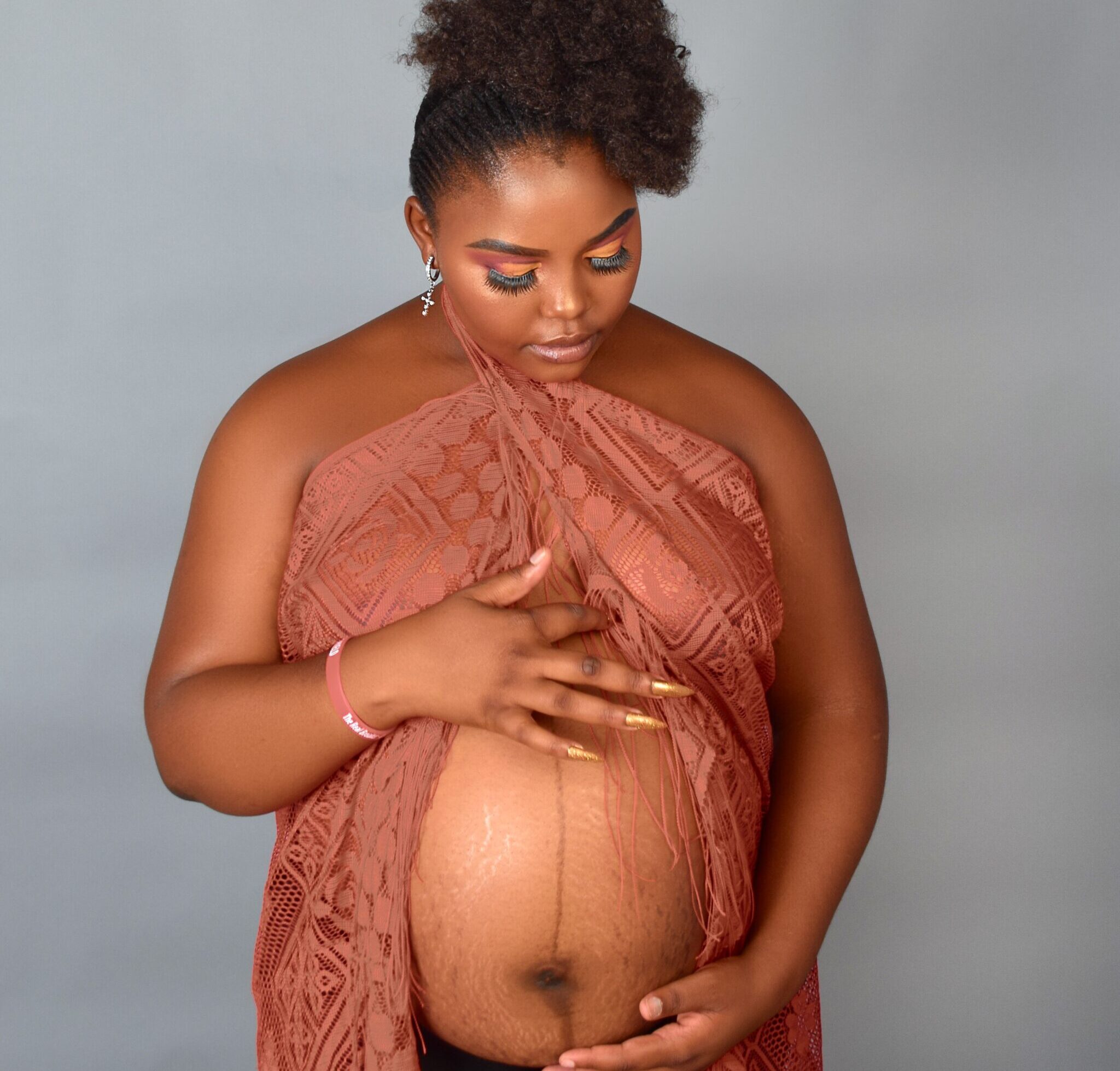Black women are three times more likely to die from pregnancy-related complications than white women. Black mothers-to-be are being failed. The current neglect of Black maternal health is the primary place to investigate. Black maternal health is all about protection. That is, protecting Black pregnancies from the widening disparities in maternal mortality. It also includes avoidable pregnancy-related complications and the silencing of Black women and their bodies. Black Maternal Health Week 2023 is April 11 – 17. It is the opportune moment to uncover the realities of what expectant Black mothers go through while providing hope and healthier alternatives.
The CDC reveals that 80 percent of maternal deaths in a two-year period, were due to preventable causes. This crisis that plagues Black mothers in the U.S. urgently requires attention from experts and healthcare officials. The CDC study shows that even while Black women gave birth less in 2021, they still died at alarmingly higher rates. For many pregnant Black women across the nation, the risk of losing your life while giving birth has become a worrying threat.
21Ninety spoke with Karen Dale, Market President at AmeriHealth Caritas. She shed some light on the glaring racial disparities within maternal healthcare. As a former registered nurse and Chief Diversity, Equity, and Inclusion Officer she offered 21Ninety her leading expert opinion on the matter.

Navigating the Black maternal health crisis, with Karen Dale:
21Ninety: What are the key contributing factors to poor Black maternal health?
Karen Dale: Black maternal health disparities are the result of multiple factors, including untreated or mistreated underlying chronic health conditions not managed properly during pregnancy. Non-medical factors driving disparities in health include health literacy, access to nutritious food, transportation, and housing.
For Black pregnant mothers, the lack of access to substantial healthcare services as well as adequate access to transportation for travel to and from OB/GYN appointments, are also significant barriers to care. Based on their identified needs, we connect them with local food resources or homeless shelters, provide transportation and offer health literacy support.
Bias stemming from the centuries old link between American gynecology and slavery, and the practice of racialized medicine and experimentation by medical professionals, created a lack of trust and fear of harm. To address this, AmeriHealth Caritas acknowledges the reason mistrust exists, and ensures that we lead with sympathy and listening. In addition, we design programming rooted in culturally responsive care, which offers services that are respectful of and responsive to the health beliefs, practices, and cultural and linguistic needs of diverse patient populations.
21N: What conversations are missing/lacking in discussions around Black Maternal health disparities?
Dale: The COVID-19 pandemic put a spotlight on the many health and life disparities that so many Black Americans face today and have historically endured. Knowing that 34 percernt of Black adults in the United States do not have home broadband is disheartening. There needs to be a greater dialogue on the role access to the internet and technology has in improving health outcomes for Black mothers. Especially during the onset of the pandemic, the need for a strong telehealth infrastructure became that much more important. For us, it’s essential we meet our pregnant members where they are to ensure proper prenatal, pregnancy and postpartum care.
During the second and third trimester, pregnant mothers require additional caloric intake to provide the necessary level of nutrients for their baby. Healthcare payers would benefit from collaborating with organizations that provide nutritionally balanced and medically tailored meals.
Postpartum recovery is a stage in the pregnancy cycle that is equally important to pay attention to as the actual pregnancy. New mothers of color experience postpartum mood disorders at twice the rate of white mothers in the U.S. Improper postpartum care can lead to new or worsened mental health issues — postpartum depression — but can also negatively impact the emotional and physical health of the mother, the baby and the overall bonding experience between the two.
21N: Have you noticed any changes in birthing Black women and their approach to healthcare systems/birthing options?
Dale: Black women are learning to advocate more for themselves and ask payers and providers the questions that might not be presented to them. We are also seeing more Black women start their own initiatives and organizations to help address the disparities head on and with one another.
Black newborns cared for by Black physicians have higher rates of survival. But we know that there is a dearth of Black physicians. Doulas and maternal peer support workers are highly recommended to strengthen the delivery system. Doulas are non-clinical, trained healthcare workers providing pregnant people with emotional support and counsel before, during, and after pregnancy. Studies show women who incorporate a doula into their pregnancy journey are less likely to experience unnecessary procedures, have a shorter labor and feel more content overall with their childbirth experience and the outcome.
We’ve started seeing more Black women confide in each other and a trusted support such as a doula or peer support worker about their maternal health obstacles. When the medical environment does not appear worthy of trust, that is a deterrent to anyone from seeking help.
21N: What do you think awaits in the future for Black maternal health?
Dale: I’m optimistic and hopeful for the future of Black maternal health. If we view cultural responsiveness as an integral part of our process, we can make progress in mitigating the disparities that exist.
I believe Black women and their payer and provider allies will work together to create better programs, share resources, and provide opportunities for Black moms to have the conversations that need to be had to ensure physical, emotional, and economic well being, a better pregnancy, and a higher quality of life for both mom and baby.
Finally, we must prioritize creating a diverse pipeline of clinical and non-clinical workers to ensure we have a more diverse health workforce.
21N: Are there any things expectant mothers should investigate or prioritize before entering healthcare spaces?
Dale: When looking for a maternal health provider (nurse midwife, doula, peer support worker, family physician, free-standing birth center or OB/GYN), be sure to vet several options. If possible, connect with friends and family about their recent birthing experiences and the healthcare professionals that they are connected with as a result. Research as much as you can on your own. While payers and healthcare professionals are well versed in their field, go to your appointments prepared with a list of questions and observations you would like addressed — and bring a trusted ally. Research, write it down, and repeat.
This same recommendation applies to health disparity education as well. Knowing we are more likely to die from pregnancy related causes makes it even more important to be aware of unexpected changes to our bodies or unusual symptoms during all stages of pregnancy. Be aware of the challenges we face so that we can address them immediately, holistically and intentionally.
This interview has been shortened for clarity and brevity.
Related: A Black Mother Shares The Racism She Experienced While Giving Birth
